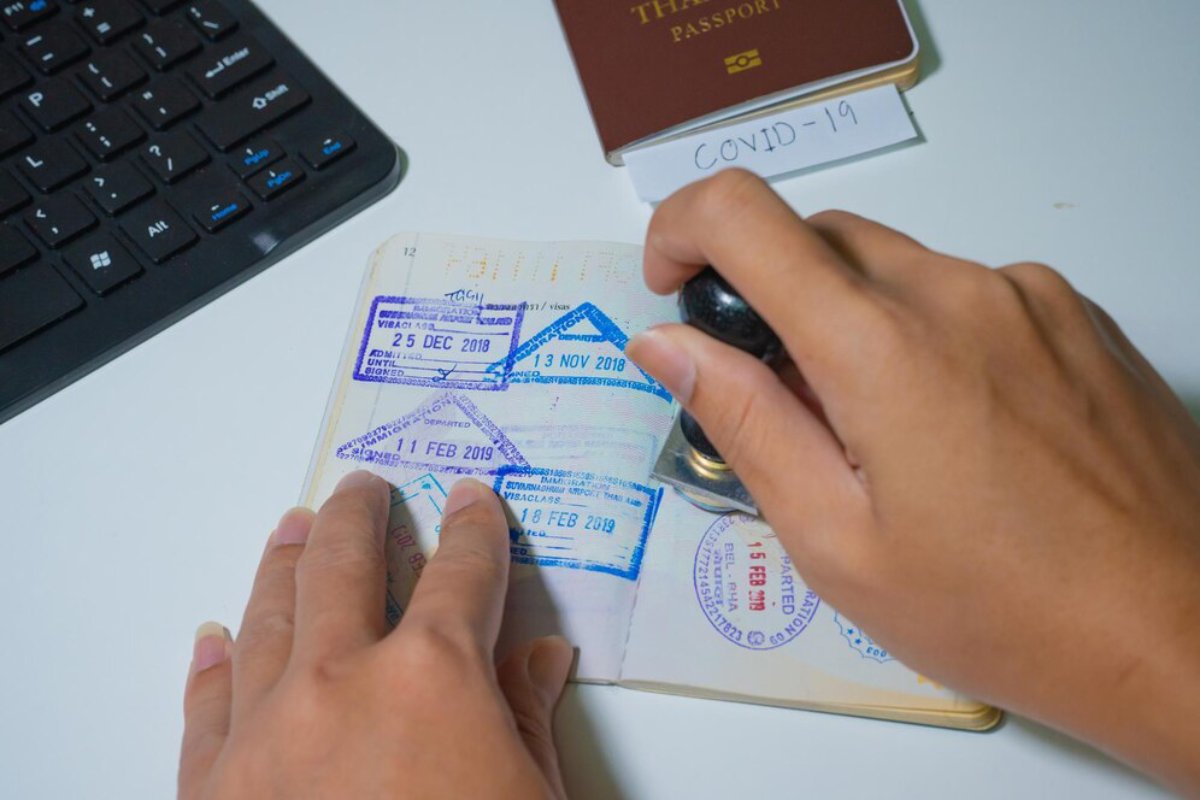The Travel Blog

Avoid Overstaying Your Visa
You’ve landed in paradise. The Wi-Fi is strong, the coffee’s perfect, and you’ve just found the co-working space of your dreams. Life as a digital nomad seems flawless—until you realise your visa expired three days ago.
It happens more often than you’d think.
For digital nomads, long-term travellers, and location-independent workers, navigating visa rules is part of the lifestyle. But between juggling time zones, projects, and adventures, it’s easy to forget the most crucial detail: your legal status.
Overstaying your visa can lead to fines, deportation, or even a ban from returning. This guide gives you the tools and tips to stay ahead, so you can enjoy your journey without legal stress.
Why Visa Compliance Matters (More Than You Think)
When you’re focused on work deadlines or sunset hikes, legal paperwork might feel like an afterthought. But overstaying your visa—intentionally or not—can carry serious consequences:
- Hefty fines
- Deportation orders
- Bans on re-entry, sometimes for years
- Issues with future visa applications
- Stress and anxiety that ruin your experience
And let’s be real: No one wants to deal with border officials explaining why they forgot to leave.
Understand Your Visa Type: Don’t Guess It
Tourist Visa vs. Digital Nomad Visa
Most digital nomads start with a tourist visa, which usually lasts from 30 to 90 days. But it’s not meant for long-term stays or work—even remote work.
Some countries now offer specific digital nomad visas or remote work permits, which let you stay longer and work legally without stress.
What you need to check:
- Maximum length of stay
- Entry/exit requirements (e.g. must leave every 90 days)
- Whether remote work is allowed
- Extension or renewal options
Always read visa terms on official government websites. Travel blogs and forums are helpful, but rules change, and only government sources are reliable.
Common Mistakes Digital Nomads Make
Let’s break down the most frequent (and avoidable) errors:

1. Assuming Your Visa Resets on Border Runs
Many nomads think they can leave a country for a day and re-enter with a new visa. But not all countries allow this. Some enforce cooling-off periods or limit how often you can re-enter.
Example: Schengen Zone rules allow 90 days of stay in any 180-day period—border runs won’t reset the clock.
2. Forgetting the Exit Date
Time flies when you’re in a new place. What felt like a long stay suddenly ends next week.
Solution: Set calendar reminders—one for two weeks before expiry, one for three days before.
3. Working on a Tourist Visa
Even if you’re working for a foreign client, some countries consider any paid work illegal on a tourist visa. Be cautious. Apply for a remote work visa where available.
How to Track Your Stay Like a Pro
Here’s how experienced digital nomads stay on top of visa rules without the stress:
Use Smart Tools
- Passport.io: Tracks your time in countries and shows when to exit.
- Schengen Calculator: Essential for planning travel within Europe.
- TripIt or Google Calendar: Set custom visa alerts alongside travel dates.
Keep a Travel Log
Even a basic spreadsheet can help. Track:
- Entry dates
- Visa expiry
- Type of visa
- Notes on extension rules
This helps you spot patterns and plan long-term travel smartly.

Applying for Extensions or Switching Visas
Sometimes, you just want to stay longer—and that’s okay. But the process must be legal and timely.
When Can You Extend?
Some countries allow visa extensions without leaving the country. Others require a “visa run”—leaving and re-entering after reapplying abroad.
Common extension-friendly countries:
- Thailand: 30-day extension for tourist visas at immigration offices
- Indonesia: Social and tourist visas can be extended multiple times
- Mexico: 180-day visa-on-arrival, with limited extension options
How to Apply Without Issues:
- Start early—at least 2 weeks before expiry
- Visit the local immigration office or apply online (if available)
- Bring all required documents (passport, proof of funds, photos, etc.)
- Be polite, patient, and prepared for queues
Consider Long-Stay or Nomad Visas
If you’re tired of counting days and doing border runs, consider applying for a digital nomad permit instead.
What Makes These Visas Different?
- Valid for 6–24 months (sometimes renewable)
- Allow legal remote work
- Often include benefits like tax breaks or family inclusion
- Typically requires proof of remote income and insurance
Top countries offering nomad visas:
- Estonia
- Portugal
- Croatia
- Barbados
- Costa Rica
These options offer more freedom, stability, and peace of mind than tourist visas.
Travel Document Tips for Smooth Journeys
Managing visas is only one piece of the legal puzzle. Make sure your documents are always in order.
Keep Digital and Physical Copies
Store passport scans, visa approvals, and insurance in:
- Cloud storage (Google Drive, Dropbox)
- A USB or offline folder
- A physical folder in your day bag
Have a Backup ID
Carry a secondary form of ID, like a driver’s licence. It helps in emergencies or if your passport gets lost.

Check Passport Validity
Many countries require 6 months’ validity beyond your entry date. Renew your passport early if needed.
Plan Around Visa-Free Countries
One strategy seasoned nomads use is to rotate through visa-friendly countries.
For UK Passport Holders, Easy-Stay Options Include:
- Mexico – 180 days visa-free
- Georgia – 365 days visa-free
- Serbia – 90 days every 180
- Malaysia – 90 days
- Montenegro – 90 days
These countries offer breathing room between stricter stays—ideal for balancing longer trips.
What to Do If You Overstay (And How to Handle It)
If you realise you’ve overstayed your visa:
- Don’t panic, but act fast.
- Check the rules for your specific country—some allow grace periods.
- Visit the nearest immigration office and explain the situation.
- Pay any fines promptly.
- Avoid repeat offences—they can carry heavier penalties.
Being honest and respectful goes a long way. Many immigration officers understand that honest mistakes happen, but repeat offenders are treated differently.
Conclusion: Stay Legal, Stay Free
Being a digital nomad is all about freedom. But real freedom comes from being informed, prepared, and respectful of local laws.
By understanding your visa, tracking your time, using tools, and choosing the right countries, you can avoid stress and stay focused on your work, your journey, and your joy.









